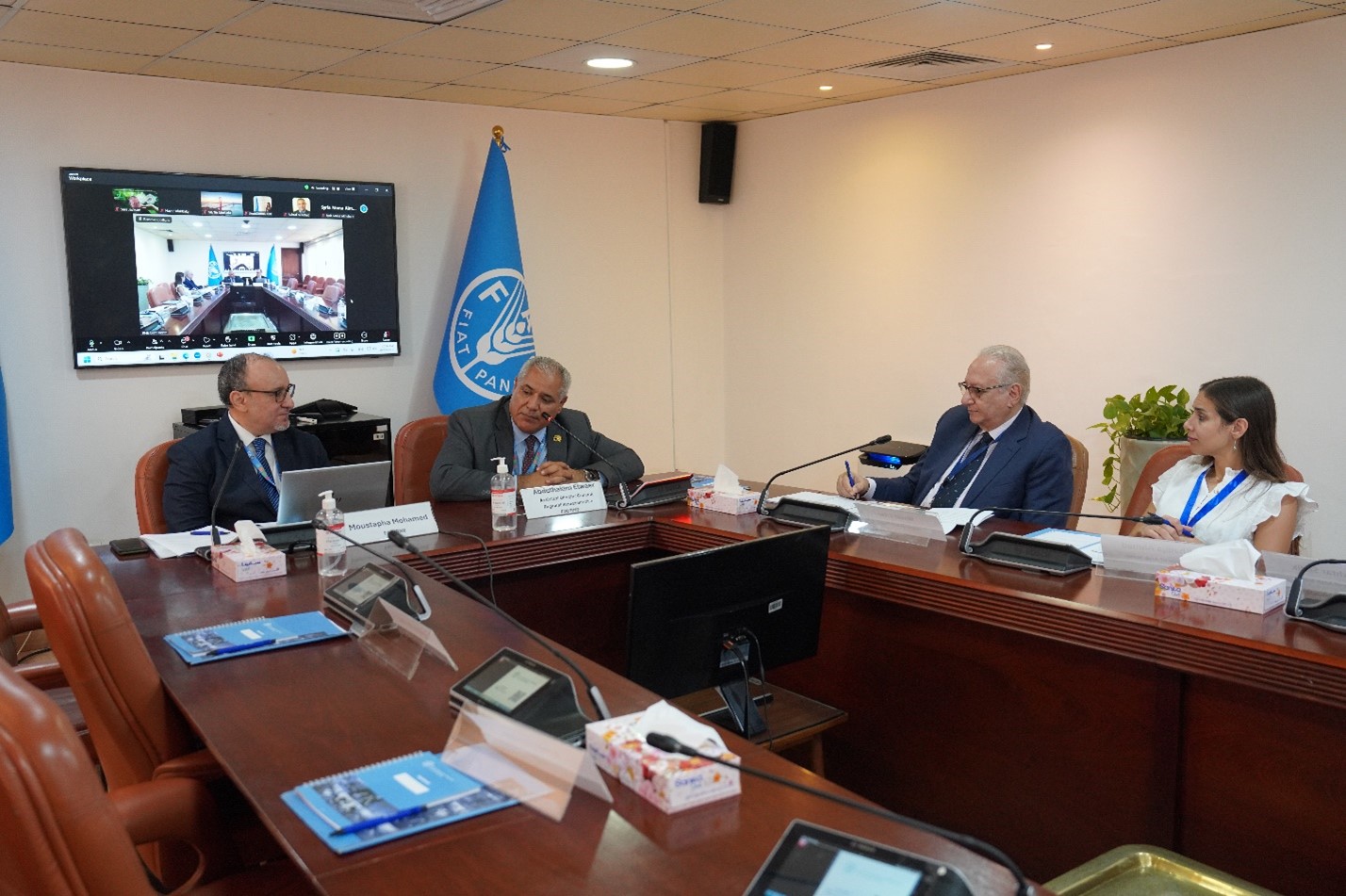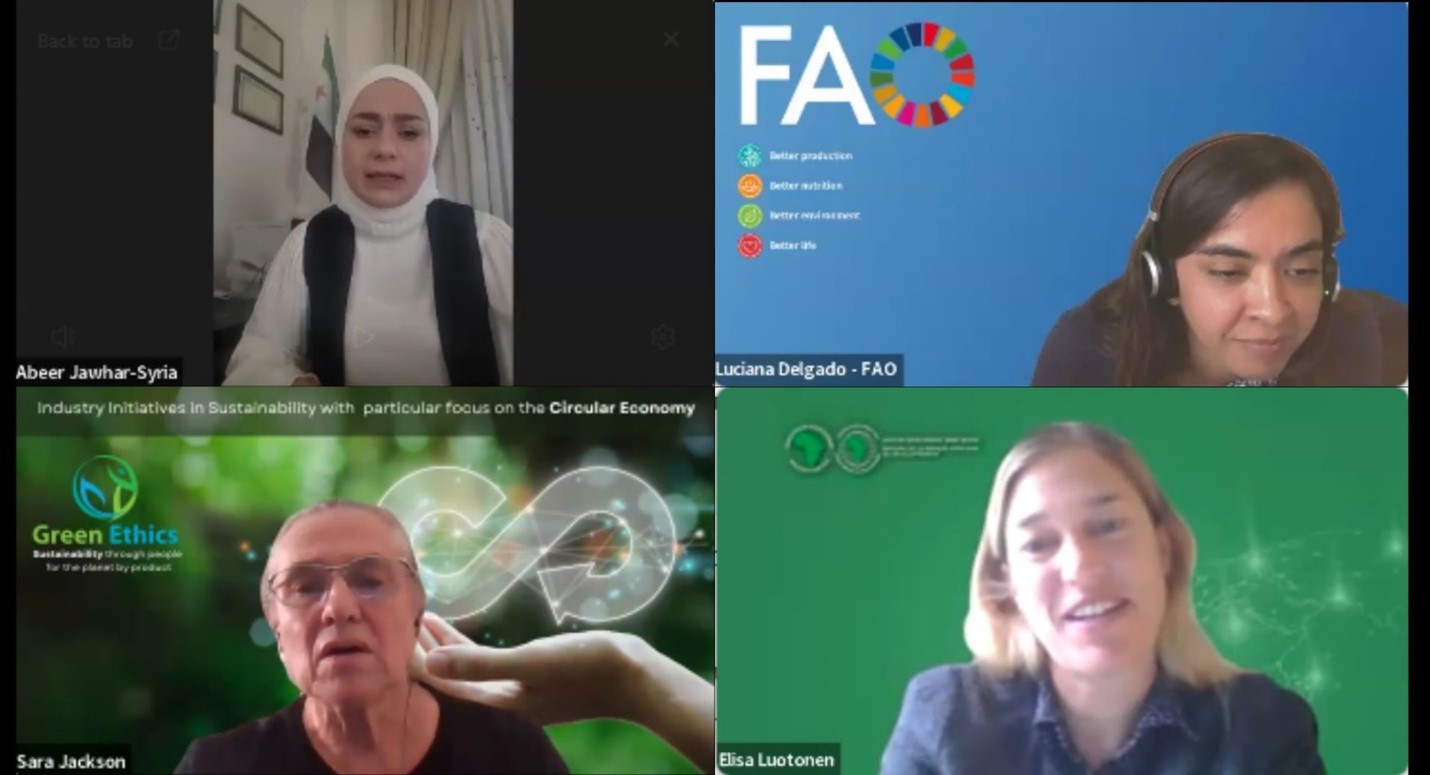Bridging the gap: FAO hosts high-level webinar to tackle food loss and waste on IDAFLW 2025

©FAO
The Food and Agriculture Organization of the United Nations (FAO) Regional Office for the Near East and North Africa (RNE) marked the International Day of Awareness of Food Loss and Waste (IDAFLW) 2025 on 23 October 2025 with a hybrid event held in Cairo under the global theme “365 Days of Action.” The event brought together representatives from governments, the League of Arab States (LAS), regional organizations, academia, and the private sector to exchange experiences and discuss innovative approaches to reduce food loss and waste in the region.
Opening the session, Dr. Abdulhakim Elwaer, FAO Assistant Director-General and Regional Representative for the Near East and North Africa, emphasized that reducing food loss and waste is one of the most cost-effective strategies for transforming agrifood systems and achieving food security and environmental sustainability. He highlighted the scale of global food losses, over 13 percent lost between harvest and retail and 19 percent wasted at the consumption stage, and stressed the urgency of collective action, particularly as the region continues to face growing food insecurity and resource constraints. Dr. Ahmad Mukhtar, Regional Programme Leader and Senior Economist for RNE, echoed this call, noting that FLW contributes to around 10 percent of global greenhouse gas emissions and remains a critical challenge in a region already burdened by water scarcity and import dependency. He announced the launch of a Regional Framework to Reduce Food Loss and Waste, a roadmap to support countries in adopting data-driven, collaborative, and context-specific strategies aligned with the FAO’s Voluntary Code of Conduct for Food Loss and Waste Reduction.
Moderated by Dr. Moustapha Mohamed, Food Safety and Quality Officer of RNE, the technical sessions provided a dynamic stage for innovative tools, such as the FAO Food Loss App (FLAPP), and other impactful regional initiatives. Dr. Luciana Delgado Otero, Technical Adviser for FAO, demonstrated its commitment to a data-driven approach by showcasing OPTIWASTE, a new application designed to support monitoring and reliable data collection on food waste.

The session then expanded to include the work of the Africa Circular Economy Facility (ACEF), presented by Ms. Elisa Luotonen, Expert in Circular Economy and ACEF Coordinator at the African Development Bank Group. The trust fund launched by African Development Bank (AfDB), which focuses on Food Systems as one of its "5 Big Bets for Africa," is actively accelerating the circular transition by backing practical solutions like regenerative agricultural practices, comprehensive post-harvest loss management, and the valorisation of agricultural waste into products like compost and protein. A prime example of this work is the Circular Food Systems for Rwanda (CIRF) Project, which aims to revolutionize food systems in a country where nearly 40 percent of food is lost or wasted annually.
Bringing a regional legal perspective, Dr. Wadid Erian from the League of Arab States (LAS) presented on the LAS's work to develop a legal framework to regulate and combat food supply chain losses, furthering the organization’s ongoing efforts through the Elimination of Hunger Initiative and the Arab Food Security Strategy.
The event also featured an in-depth presentation by Ms. Sara Jackson, Secretary General of the Circular Packaging Association (CPA), titled “Navigating Circularity Challenges for Packaging as a Driver for Prevention of Food Loss.” Jackson underscored the critical role of circular packaging in reducing FLW, emphasizing that while packaging is essential for food safety and extending shelf life, its end-of-life management poses significant environmental challenges. She outlined how the association, a UAE-based cross-sector industry forum, is mobilizing efforts to divert packaging from landfills and promote circular solutions for post-consumer materials.
In closing, FAO RNE reaffirmed its commitment to supporting regional countries in strengthening data capacity, harmonizing methodologies, and implementing innovative, context-specific policies that advance food security while safeguarding environmental resources. The 2025 observance of IDAFLW thus reinforced the importance of collective, evidence-based action to ensure that every stage of the food system, from production to consumption, contributes to a future of better production, better nutrition, a better environment, and a better life for all.
